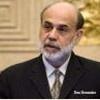Marching to zero, Fed in new course
Bloomberg

refid:10590905 ilişkili resim dosyası
The Federal Reserve opened a new era in U.S. monetary history, cutting interest rates to as low as zero and pledging to buy unlimited quantities of securities, after conventional policies failed to arrest what may be the worst recession since World War II.
The Fed’s Open-Market Committee late Tuesday said it will use "all available tools" to generate a resumption in growth. The FOMC also effectively retired its benchmark interest rate, bringing the target for overnight loans between banks down to zero to 0.25 percent from 1 percent previously.
The new strategy is likely to involve unusually close cooperation with the Treasury of President-elect Barack Obama, which is still formulating its economic-rescue plans. The aim is to kick-start borrowing and spending to propel the economy toward a recovery by the middle of next year.
"It’s going to take a combination of fiscal and monetary stimulus to get the job done," said former Fed Governor Lyle Gramley, now senior economic adviser at Stanford Group in Washington. The central bank has signaled it will "make sure that the fiscal stimulus package, which is going to be a big one, is fully supported" and "in effect financed by the Fed."
Unprecedented steps
Possible steps by the Fed in coming months include financing for a new package to shore up the housing industry and expanding a $200 billion program to undergird credit card and student loans. The new plan is risky: market pricing could be distorted for months or years, with insolvent borrowers kept afloat as central bankers force yields below levels investors deem appropriate given the risks.
Stocks surged as the clarity of the Fed’s commitment exceeded some investors’ forecasts. Treasuries jumped in anticipation of Fed purchases, and mortgage bonds rallied. The Standard & Poor’s 500 Index rose 5.1 percent to a five-week high Tuesday. Benchmark 10-year note yields fell more than a quarter point, to 2.26 percent.
Among new ideas the Fed is open to is buying lower-rated securities, with backing from the Treasury, a senior Fed official told reporters in Washington. Central bankers plan to discuss possible strategies with Obama’s Treasury, the person said.
Obama’s pick for Treasury secretary is Timothy Geithner, the president of the New York Fed, who has been Bernanke’s closest adviser on the emergency lending programs that the central bank has already introduced during the 16-month financial crisis.
Obama met with Geithner, former Treasury Secretary Lawrence Summers and other members of his economic team Tuesday in Chicago as he assembles plans for a two-year fiscal stimulus package after he takes office. Among his other priorities is a new, comprehensive effort to use taxpayer funds to stem record mortgage foreclosures.
"We are running out of the traditional ammunition that is used in a recession," Obama said Tuesday.
The Fed said it may expand its $600 billion initiative to buy debt issued or backed by government-chartered mortgage-finance companies. It is also "evaluating" purchases of longer-term Treasury securities.
"The only meaningful limitation now is their capacity to be creative," said David Resler, chief economist at Nomura Securities International, New York. "The Fed is telling us there is just about nothing off the table."
Other existing programs include an unlimited effort to buy commercial paper from companies and financial firms and a backstop for money-market mutual funds.
The central bank can make a difference in credit markets where yields are higher than they would otherwise be because of a lack of liquidity due to the financial crisis, the senior Fed official said. Still, inserting the Fed as a main purchaser in those markets raises the danger of delaying a recovery in private lending, some observers said.
"The availability of Fed credit might deter private credit," said Vincent Reinhart, resident scholar at the American Enterprise Institute in Washington. "The lender of last resort becomes the lender of only resort."
